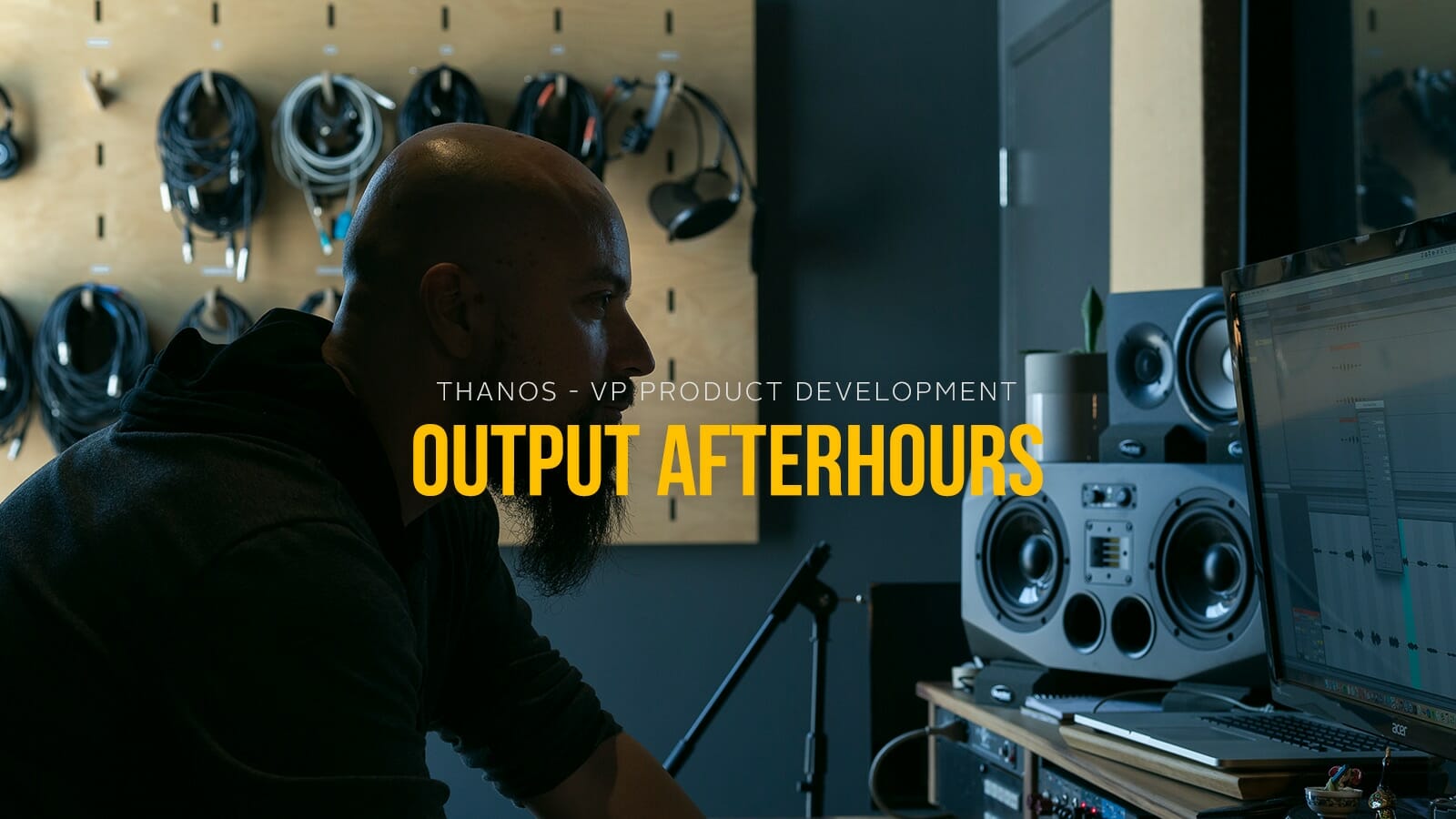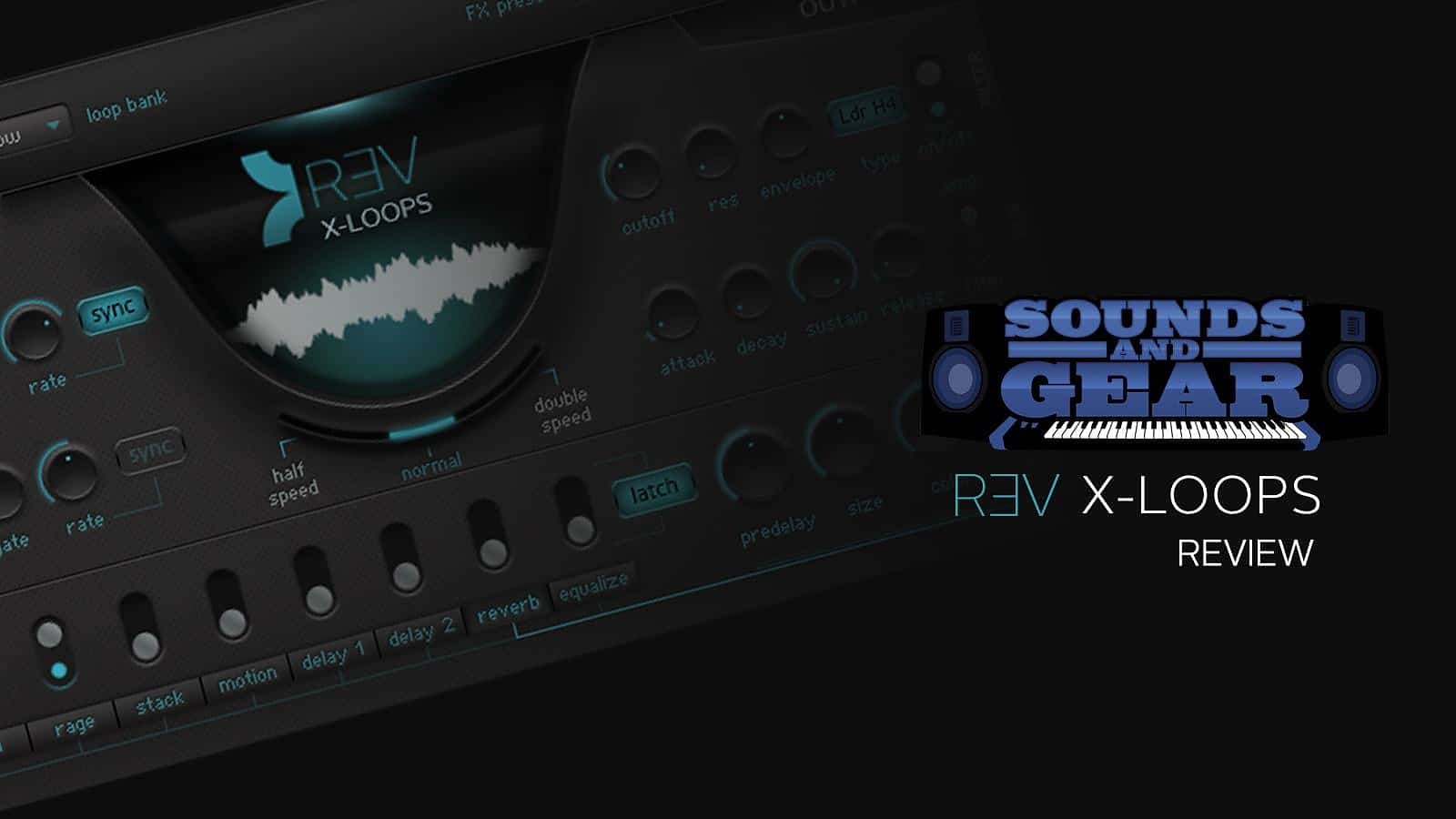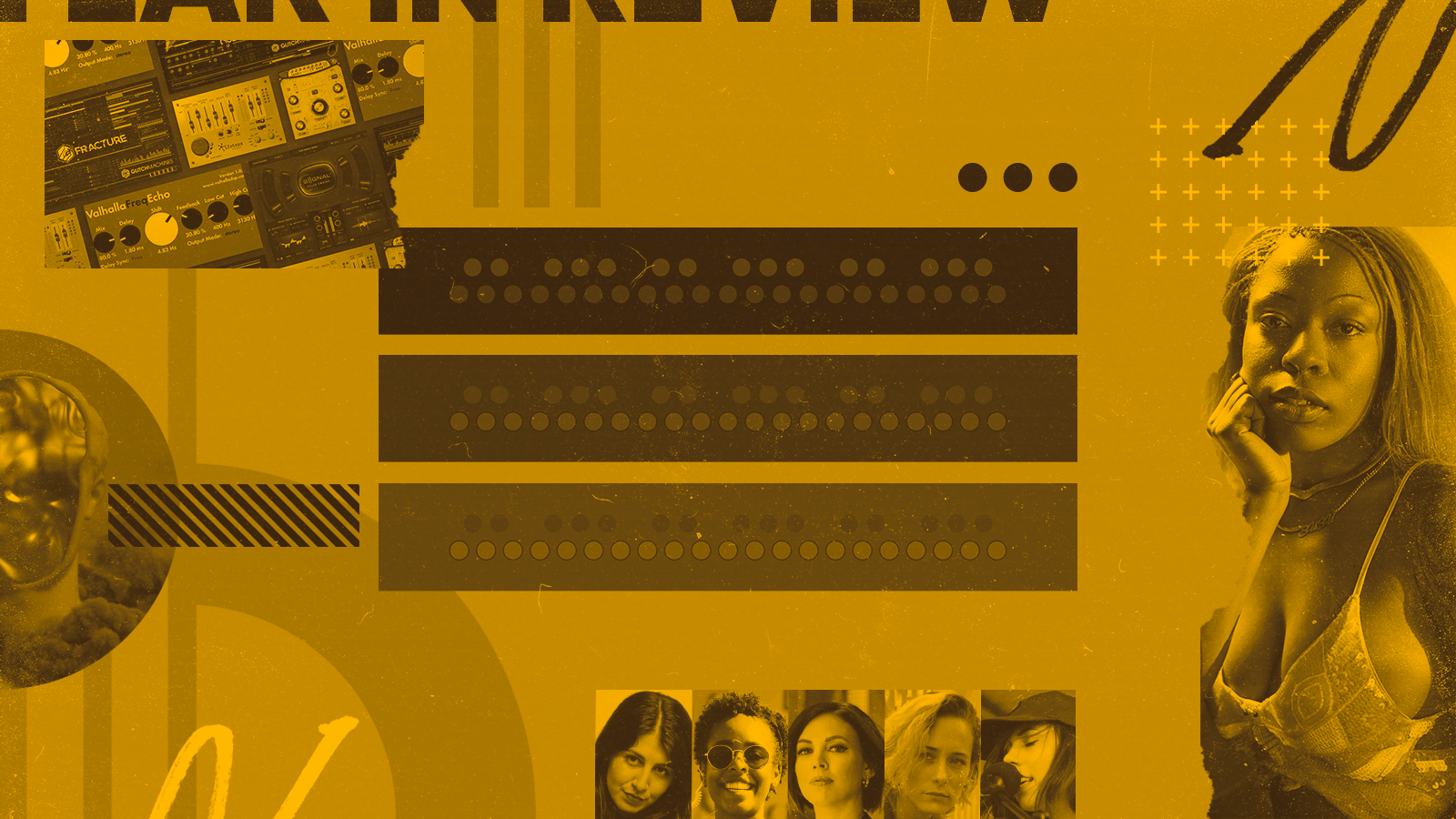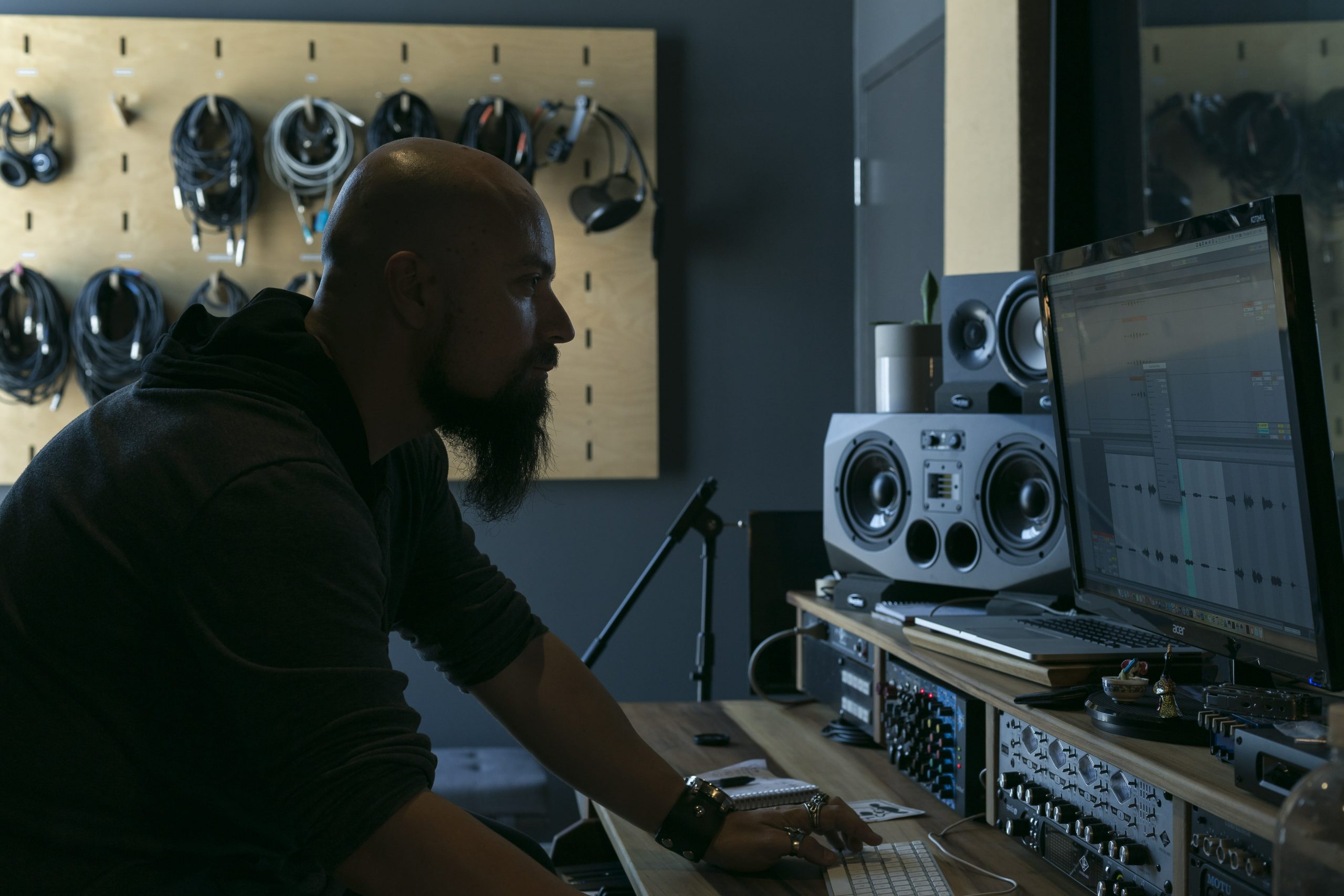
Meet our crew! Every edition of Output Afterhours gives a glimpse into the people who make our tools come to life. On deck is Thanos, VP of product development, synthesizer collector, and motorcycle enthusiast. Get a peek behind the sounds at Output.
What do you do at Output?
I manage quality assurance, making sure our products are bug-free and provide the best user experience. I also manage product development for Kontakt Instruments and other software.
What that mostly means is that I constantly analyze the strengths and weaknesses of our instruments to be up to par with the industry standard, and combine those with my own needs and wants as well as the needs of our sound design team. Taking all that in mind along with technical considerations, we come up with the best solution.
What does a day in the life at Output look like?
A typical day in software development here at Output is answering emails and questions/issues that arise every day as well as constantly testing our software and finding solutions or workarounds. When the fires are out, then I put my creative thinking hat on and try to come up with product ideas or creative software that I then mock-up, wireframe, or prototype to present to the team.
What was your starting point in music?
When I was very young my parents took us on a family Christmas trip to Europe. My choice for a present was either a computer (Amiga or Atari at the time) or a synthesizer keyboard. The computer store was closed on a Sunday so I ended up with a synthesizer. That started it all. Little did I know that in the future those two would be combined in the best way possible.
During and after high school in Greece, I studied and ended up working as a sound engineer recording and mixing albums. I was also gathering various synthesizers and samplers from the very young age of 12, and playing around trying to imitate the music style of Jean-Michel Jarre, Vangelis, and other electronic music pioneers. By the time I left Greece, I had to sell about 14 different synths.
“My dream was always to be in music and software, combining my two deepest loves for music and technology tools.”
This synth and sound exploration lead me to move to the United States and study music synthesis at the Berklee College of Music, which eventually led me to LA to work as a sound designer and Pro Tools editor for movies, TV, and video games like Uncharted, Gears of War, Mass Effect, and Ratchet & Clank.
However, my dream was always to be in music and software, so I started working at Native Instruments as a sound designer and eventually here at Output, combining my two deepest loves for music and technology tools.
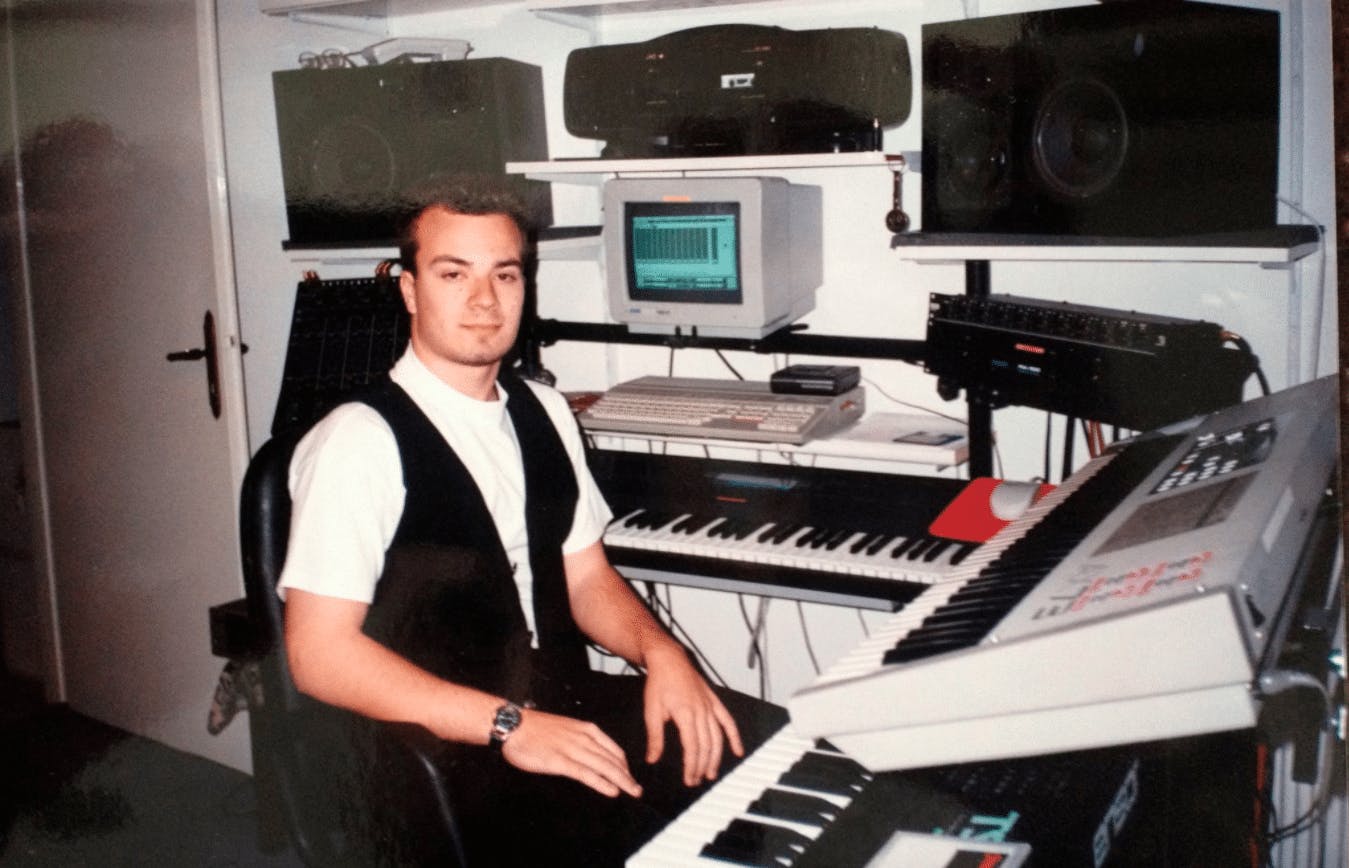
How do you balance all of your creative endeavors?
The end goal for me has always been to create the best user experience for music software users and with that, I don’t think that all the various tasks need balancing. Whether it’s testing, designing, coding, or simply using music software, it’s all balancing itself because the end goal is the same.
However, when I don’t have to deal with putting out fires, I tend to study programming and learn how to code music software from the ground up in C++. Then, I take my motorcycle out for a ride to nowhere for no reason and with no destination, or I spend quality time with my kids, playing games and laughing.

What is the most beautiful sound in the world?
That’s a very good question. For me, it’s the silence in-between notes; the breath a music player takes before the next melodic line. It builds anticipation, dynamics, and emotional release. It’s the momentary “lack of sound” that makes the sounds before or after even more meaningful.
